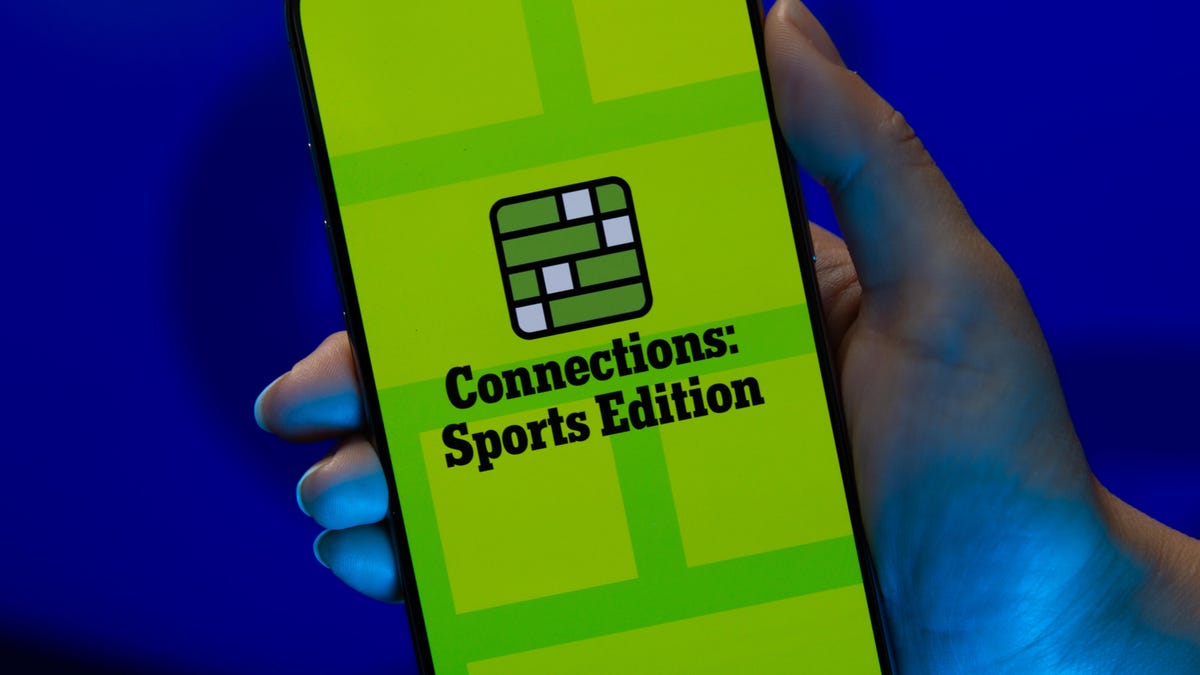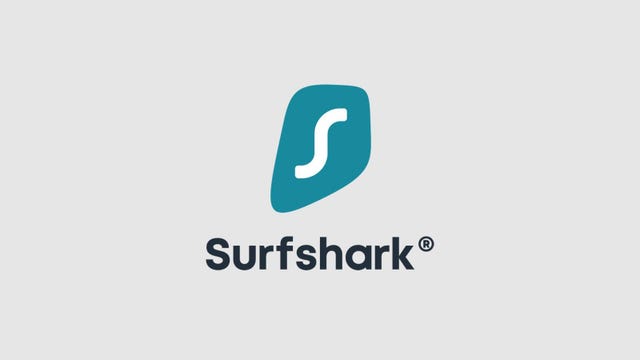Technologies
ExpressVPN vs. Surfshark: How CNET’s Top Two VPNs Compare
Both VPN services are excellent, so we compared their speed, price and privacy to help you decide which is best for you.

ExpressVPN and Surfshark are two of CNET’s best VPN picks, both earning Editors’ Choice designations. ExpressVPN is CNET’s Editors’ Choice for best overall VPN, and Surfshark is CNET’s Editors’ Choice for best value VPN. Both are excellent options for anyone who wants a VPN that offers first-rate privacy protections, but can also reliably handle geoblocks when streaming content online.
This comparison between ExpressVPN and Surfshark is based on extensive testing and thorough evaluations of each service’s overall value, privacy features and speeds. I conducted hundreds of individual speed tests for each provider to multiple locations and through multiple VPN protocols and platforms, along with leak tests and kill switch tests. I also carefully evaluated each provider’s features, privacy policy, terms of service, transparency efforts and customer support.
Both are first-class VPN providers, but ExpressVPN edges Surfshark in this head-to-head. Read on to find out why.
Read more: Best VPN Services of 2023
ExpressVPN vs. Surfshark
- See latest ExpressVPN coupons and deals
ExpressVPN is currently CNET’s top overall VPN pick due to its strong commitment to privacy and transparency, excellent speeds and streaming capabilities. If you have critical online privacy needs, ExpressVPN is the way to go. But if you want to unblock a world of streaming options, ExpressVPN is the one for the job, too. Its interface is minimalist and easy to use across platforms, but has a lot of options for customization from its Preferences menu. ExpressVPN is a well-rounded service that performs admirably for virtually any VPN use case, whether you’re a beginner or advanced VPN user. It leans a tad toward the expensive side, but if you want a top-notch VPN experience it’s worth it — even if you only get five simultaneous connections.
- See latest Surfshark coupons and deals
If you’re looking for a VPN that provides the most value for your money, Surfshark is the VPN for you. Despite its budget-friendly pricing, Surfshark is loaded with features, provides a few unique privacy protections and unblocks more Netflix libraries than you can count. Surfshark is a relative newcomer to the industry, compared to ExpressVPN, but it has already made a name for itself in the highly competitive VPN market. I’m impressed with how Surfshark continues to innovate and work toward improving its service on multiple fronts — and hoping it can continue to offer its favorable pricing.
Speed winner: ExpressVPN by a wide margin, thanks to Surfshark’s inconsistency and sputtering OpenVPN speeds
Finding the fastest VPN is a priority for most VPN users, so we put VPNs through rigorous speed testing. In my most recent speed tests in the first quarter of 2023, I registered an 18% average speed loss with ExpressVPN and an average 40% speed loss with Surfshark.
ExpressVPN was consistently speedy regardless of which protocol, device or location I tested it through. The only other VPN that performed more consistently during my most recent speed tests was NordVPN. The best speed performance I got out of ExpressVPN was through the OpenVPN protocol from my testing location in Hungary, where I registered a 9% speed loss compared to my base speeds. The best speed performance I got through WireGuard with ExpressVPN was from my other testing location in Ohio, where I registered an 11% speed loss. And with ExpressVPN upgrading its server fleet to 10Gbps servers, I’m hoping to see even faster and more consistent speeds from the provider in the future.
Surfshark’s speeds through the WireGuard VPN protocol from Ohio were excellent, causing my speeds to dip a mere 8% below my base internet speeds — above the top speeds I saw from ExpressVPN. However, Surfshark’s speeds through the OpenVPN protocol on my Windows laptop were abysmal, cutting my base speeds by a whopping 76%. And that’s the core issue, here. While Surfshark sometimes offered good speeds, I never knew what to expect from different protocols or devices.
I have found that VPN speeds through Windows machines tend to be marginally slower across the board than they typically are through a Mac, but other VPNs I tested through Windows didn’t register such a dramatic drop in speeds as Surfshark did. Losing more than three quarters of your base speed can be a real downer if you’re a gamer, torrenter or like to stream content. That said, Surfshark’s OpenVPN speeds through my Mac were fairly respectable (34% speed loss), though not overly impressive. Still, the inconsistent nature of Surfshark’s overall speed performance was a major disappointment.
If you want to optimize your speeds with Surfshark, I recommend connecting through the WireGuard protocol, especially if you’re a Windows user. Surfshark tells me that its development team is working on the issue, so hopefully OpenVPN speeds will improve in the future.
Cost winner: Surfshark, thanks to its impressive suite of features at a significantly lower price
ExpressVPN is, by all measures, a premium VPN service. It’s top of the line when it comes to speed, privacy, features and unblocking capabilities. And, compared to the competition, it’s expensive. ExpressVPN’s most cost-effective subscription plan is its annual plan, which costs $100 per year. You can also opt for either a biannual plan for $60 every six months or a monthly plan for $13 per month.
For that price, you get five simultaneous connections, access to a global network of servers spanning 94 countries, 24/7 live chat customer support, an easy-to-use app for all of your devices and unparalleled streaming capabilities. Additionally, you’ll eventually get access to ExpressVPN’s password manager, Keys, at no additional cost, once it exits beta and is rolled out universally to all users.
Surfshark is far easier on the pocketbook than ExpressVPN. Though Surfshark’s monthly pricing is equal to that of ExpressVPN at $13 per month, its yearly rate is considerably cheaper at $48 for the first year (then $60 per year) — a savings of $40 per year after the promo pricing ends. And while we don’t recommend committing to any VPN provider for more than a year due to the volatile nature of the industry on the whole, you can get your first two years with Surfshark for $60 total (which then renews annually at $60).
If you go with Surfshark’s annual plan, you get a feature set comparable to ExpressVPN, for a fraction of the cost. And unlike ExpressVPN’s meager simultaneous connection limit of five, Surfshark allows for an unlimited number of simultaneous connections. In addition to that, you’ll get access to servers in 100 different countries, 24/7 live chat customer support, an ad and malware blocker, cookie popup blocker and split tunneling. And Surfshark’s streaming capabilities are constantly improving, putting the provider nearly on the same level as ExpressVPN in that regard. With Surfshark, you can unblock an impressive number of international Netflix libraries. And, following our previous Surfshark review, the provider improved significantly in its ability to reliably unblock Disney Plus.
Among CNET’s top VPN picks, ExpressVPN and Surfshark occupy opposite ends of the spectrum when it comes to cost — NordVPN, Proton VPN and IPVanish fall somewhere in between. With ExpressVPN you get the quality that you pay for, and with Surfshark, you get tremendous value for the comparatively low price you pay (if you sign up for a longer-term subscription). Sure, ExpressVPN is well worth its premium price tag, but if you’re a casual VPN user who doesn’t necessarily need every bit of what ExpressVPN offers, Surfshark is more than capable of providing everything you need in a VPN at a lower cost.
Privacy and security winner: ExpressVPN, thanks to its TrustedServer technology and unmatched transparency efforts
ExpressVPN and Surfhark both offer excellent privacy for VPN users. Like CNET’s other top VPN picks, ExpressVPN and Surfshark both offer industry-standard (and virtually uncrackable) AES 256-bit encryption to protect users’ traffic. They both also offer standard privacy protections like a kill switch, DNS leak protection, no-logging policy and a RAM-only diskless server infrastructure. Both providers’ kill switch and DNS leak protection worked flawlessly during my testing. It’s a tight race here, but if I had to choose one for critical privacy needs, I would choose ExpressVPN.
ExpressVPN’s TrustedServer technology builds on top of the concept of a RAM-only diskless server infrastructure. ExpressVPN’s servers run on volatile memory, meaning that user data is never stored on a hard disk and is wiped when the server is turned off or rebooted. This makes it difficult for anyone to collect user information. And with TrustedServer, the entire software stack is completely reinstalled whenever an ExpressVPN server starts up. ExpressVPN says that this process helps mitigate risks of introducing vulnerabilities or misconfiguration.
TrustedServer, along with ExpressVPN’s apps, browser extension, router, VPN protocols and no-logs policy have all been independently audited in the past year. The company’s 12 independent audits in 2022 are a testament to its commitment to transparency and go well above and beyond what most of its other peers in the VPN industry offer.
Surfshark, by comparison, has gone through a mere smattering of independent audits over the past few years. Surfshark’s browser extensions were audited in 2018, its server infrastructure was audited in 2021 and it went through its first no-logs audit in January 2023. Three audits is better than none, but Surfshark can still do more to boost its trust and transparency.
That said, Surfshark’s Nexus network technology is a neat innovation that includes features that help boost user privacy. Through the Nexus network, you can route your VPN connection through multiple servers of your choosing at once on Surfshark’s network, rather than just one server or a preset combination of two servers. This helps add an extra layer of protection. In addition to Surfshark’s Dynamic MultiHop, the Nexus network offers other innovative privacy features like an IP Rotator that periodically changes your IP address without disconnecting from the VPN and an IP Randomizer that changes your IP address each time you visit a new website. ExpressVPN currently doesn’t offer multihop connections or IP rotator/randomizer features.
ExpressVPN and Surfshark compared
| ExpressVPN | Surfshark | |
|---|---|---|
| Price | $13 per month, $60 per 6 months, $100 per year | $13 per month, $48 for the first year (then $60 annually) |
| Avg. % speed loss | 18% | 40% |
| Server network | 3,000 servers in 94 countries | 3,200-plus servers in 100 countries |
| Encryption | AES 256-bit | AES 256-bit |
| VPN protocols | OpenVPN, Lightway, IKEv2 | OpenVPN, WireGuard, IKEv2/IPSec |
| Jurisdiction | British Virgin Islands | Netherlands |
| Compatibility | Windows, MacOS, Linux, Android, iOS, Fire TV, routers | MacOS, Windows, Linux, iOS, Android, Fire TV, routers |
| Simultaneous connections | 5 | Unlimited |
Bottom line
ExpressVPN is for you if you need a VPN that can protect your privacy in situations where your online privacy is a critical consideration. The VPN’s TrustedServer technology, privacy-friendly jurisdiction in the British Virgin Islands and comprehensive list of independent security audits help reinforce its commitment to user privacy. Whether you need privacy in the face of online surveillance, or if you’re a doctor, lawyer, journalist, dissident, whistleblower, activist or anyone else who requires heightened online privacy, then ExpressVPN is the way to go.
Or if you’re a casual VPN user simply looking for a fast VPN that’s easy to use and can unblock a world of streaming options while hiding your activity from your ISP, then ExpressVPN is a great option too — as long as you don’t mind paying the premium.
On the other hand, if you’re a casual user on a budget and want a VPN that can get the job done for less, Surfshark could be the VPN for you. Though Surfshark isn’t quite at the level that ExpressVPN is in terms of privacy protections and transparency, Surfshark has a few unique privacy features like MultiHop and IP Rotator/Randomizer that may appeal to certain users who want to add an extra layer of protection to their traffic. However, Windows users who prefer connecting through OpenVPN for privacy may want to opt for ExpressVPN due to Surfshark’s speed issues through OpenVPN on Windows.
And because Surfshark offers unlimited simultaneous connections, it’s also an excellent option for folks with lots of connected devices or anyone with a large family or group of friends they want to share an account with.
FAQs
Which VPN is better, ExpressVPN or Surfshark?
It depends on what you want out of your VPN. If price is your primary concern when choosing a VPN, go with Surfshark. If you have lots of devices you want to connect at once, Surfshark would be the best choice again. If critical privacy is your main concern, go with ExpressVPN. For the best overall speeds and the best geoblock circumvention, go with ExpressVPN too.
Is the price difference worth it?
If your online privacy is of critical importance, then yes, the higher price you pay for ExpressVPN is worth it. Also, if you want the best possible speeds across platforms and protocols, for streaming and torrenting, the price difference is worth it. If you’re a casual user who doesn’t require all of that and doesn’t want to pay a premium for their VPN, Surfshark is a worthy alternative that shouldn’t be considered a downgrade.
Can you try ExpressVPN or Surfshark for free?
Neither ExpressVPN nor Surfshark officially offer a free trial at this time. However, if you download and sign up for either service through the Apple App Store or Google Play Store, you can activate a seven-day free trial. Just remember to cancel your trial before the seven days is up if you don’t want to continue with the service, to avoid getting charged. Both Surfshark and ExpressVPN offer 30-day money-back guarantees as well. If you purchase a subscription and decide that you’re not satisfied for whatever reason, you can request a full refund within the first 30 days of purchase.
Read more: Best Cheap VPN for 2023
Technologies
Today’s NYT Connections: Sports Edition Hints and Answers for Feb. 5, #500
Here are hints and the answers for the NYT Connections: Sports Edition puzzle for Feb. 5, No. 500.

Looking for the most recent regular Connections answers? Click here for today’s Connections hints, as well as our daily answers and hints for The New York Times Mini Crossword, Wordle and Strands puzzles.
Today’s Connections: Sports Edition is a tough one. As an old-school Minnesota Twins fan, I was excited to see the last name of our most legendary player on the grid. If you’re struggling with today’s puzzle but still want to solve it, read on for hints and the answers.
Connections: Sports Edition is published by The Athletic, the subscription-based sports journalism site owned by The Times. It doesn’t appear in the NYT Games app, but it does in The Athletic’s own app. Or you can play it for free online.
Read more: NYT Connections: Sports Edition Puzzle Comes Out of Beta
Hints for today’s Connections: Sports Edition groups
Here are four hints for the groupings in today’s Connections: Sports Edition puzzle, ranked from the easiest yellow group to the tough (and sometimes bizarre) purple group.
Yellow group hint: QB is another one.
Green group hint: Hit it out of the park.
Blue group hint: Great gridiron signal-callers.
Purple group hint: Half of a thousand.
Answers for today’s Connections: Sports Edition groups
Yellow group: Football positions, abbreviated.
Green group: Members of the 500-HR club.
Blue group: First names of QBs to throw 500 career TDs.
Purple group: ____500.
Read more: Wordle Cheat Sheet: Here Are the Most Popular Letters Used in English Words
What are today’s Connections: Sports Edition answers?
The yellow words in today’s Connections
The theme is football positions, abbreviated. The four answers are CB, OT, S and TE.
The green words in today’s Connections
The theme is members of the 500-HR club. The four answers are Banks, Bonds, Foxx and Killebrew.
The blue words in today’s Connections
The theme is first names of QBs to throw 500 career TDs. The four answers are Aaron, Drew, Peyton and Tom.
The purple words in today’s Connections
The theme is ____500. The four answers are ATP, Daytona, Indy and WTA.
Don’t miss any of our unbiased tech content and lab-based reviews. Add CNET as a preferred Google source.
Technologies
Today’s NYT Mini Crossword Answers for Thursday, Feb. 5
Here are the answers for The New York Times Mini Crossword for Feb. 5

Looking for the most recent Mini Crossword answer? Click here for today’s Mini Crossword hints, as well as our daily answers and hints for The New York Times Wordle, Strands, Connections and Connections: Sports Edition puzzles.
Need some help with today’s Mini Crossword? The Across clues were kind of tricky today, but the Down clues helped me fill in the grid. Read on for all the answers. And if you could use some hints and guidance for daily solving, check out our Mini Crossword tips.
If you’re looking for today’s Wordle, Connections, Connections: Sports Edition and Strands answers, you can visit CNET’s NYT puzzle hints page.
Read more: Tips and Tricks for Solving The New York Times Mini Crossword
Let’s get to those Mini Crossword clues and answers.
Mini across clues and answers
1A clue: Battery warning from a smoke detector
Answer: CHIRP
6A clue: Word that can precede «book» or «tour»
Answer: AUDIO
7A clue: Extreme edge
Answer: BRINK
8A clue: Like a wobbly screw
Answer: LOOSE
9A clue: Type in
Answer: ENTER
Mini down clues and answers
1D clue: Alternative to streaming
Answer: CABLE
2D clue: One of the Great Lakes
Answer: HURON
3D clue: Dummy
Answer: IDIOT
4D clue: Wash under a tap
Answer: RINSE
5D clue: Game in which Paul Newman successfully cons a crime boss in «The Sting»
Answer: POKER
Technologies
Fitbit Launches Luffu, AI-Powered Health Tracking for the Whole Family
Soon, you may be able to access every family member’s health data in one place.

If you’ve ever wanted a way to keep all of your family’s health records in place, Fitbit may have come up with a solution. Fitbit, well-known for its fitness wearables, announced the launch of its own health care system on Wednesday.
Luffu, which translates to the Old English word for «love,» uses AI to create what it calls an «intelligent family care system.» The platform allows family members to share all their health information through an app.
It’s unclear when Luffu will be officially available, but you can sign up for the waitlist to get access to the limited public beta. Pricing or other details have not been announced.
Luffu will allow families to keep track of everyone’s doctor’s appointments, test results, vaccine records, medications, symptoms, diet and more. The platform uses AI to learn your family’s health history and patterns, and to alert you to any changes that should be addressed, such as missed medications or abnormal vitals. The AI function organizes the data submitted into the system. The app will also connect to third-party apps and wearables, such as the Fitbit.
Luffu is meant to lighten the mental load of family care by organizing all this health data in one place, its co-founder said.
«I was caring for my parents from across the country, trying to piece together my mom’s health care across various portals and providers, with a language barrier that made it hard to get a complete, timely context from her about doctor visits,» said Luffu co-founder James Park.
Luffu will include alerts and a space to log health and medication information via voice, text, photos, and other health portals and devices. The key medical information can be shared across the platform with spouses, caregivers and parents.
A representative for Fitbit did not immediately respond to a request for comment.










